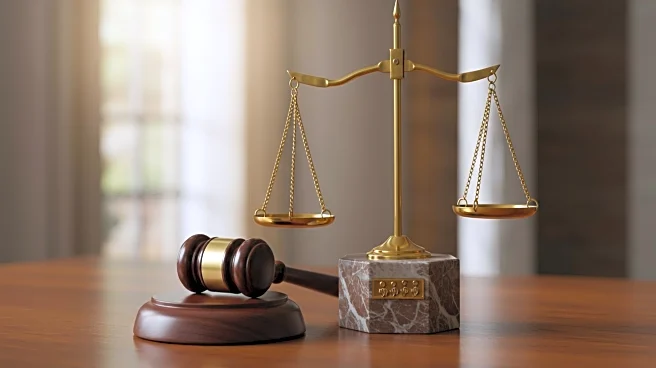What's Happening?
The D.C. Attorney General, Brian Schwalb, has filed a lawsuit against President Trump over his attempt to take control of the D.C. police department. This move by Trump involves giving the Attorney General control over the local police force, a decision that has been met with resistance from local officials. The lawsuit argues that Trump's actions are unlawful and not supported by the legislative history of home rule, which was established to grant D.C. autonomy over its local affairs. The controversy highlights tensions between federal authority and local governance, with D.C. Mayor Muriel Bowser criticized for her perceived subservience to the Trump administration.
Why It's Important?
This legal challenge is significant as it underscores the ongoing struggle for D.C. home rule and autonomy. The outcome of this lawsuit could have broader implications for the balance of power between federal and local authorities, particularly in areas with unique governance structures like Washington D.C. If Trump succeeds, it could set a precedent for increased federal control over local jurisdictions, potentially affecting civil liberties and local governance. The case also reflects the political dynamics and power struggles in the nation's capital, with potential impacts on public policy and civil rights.
What's Next?
The lawsuit will proceed through the judicial system, with potential implications for D.C.'s governance and autonomy. Stakeholders, including local government officials, civil rights groups, and political leaders, are likely to weigh in on the case, given its significance. The legal proceedings could lead to a reevaluation of the Home Rule Act and its provisions, possibly prompting legislative action to clarify the limits of federal authority over D.C. The outcome may influence future interactions between federal and local governments across the U.S.
Beyond the Headlines
The case raises deeper questions about the role of federal authority in local governance and the protection of civil liberties. It highlights the challenges faced by minority communities in asserting their rights and autonomy in the face of federal intervention. The situation also reflects broader societal issues, such as racial equality and the representation of marginalized groups in positions of power. The legal battle could catalyze discussions on the need for reforms to ensure equitable governance and the protection of local autonomy.











